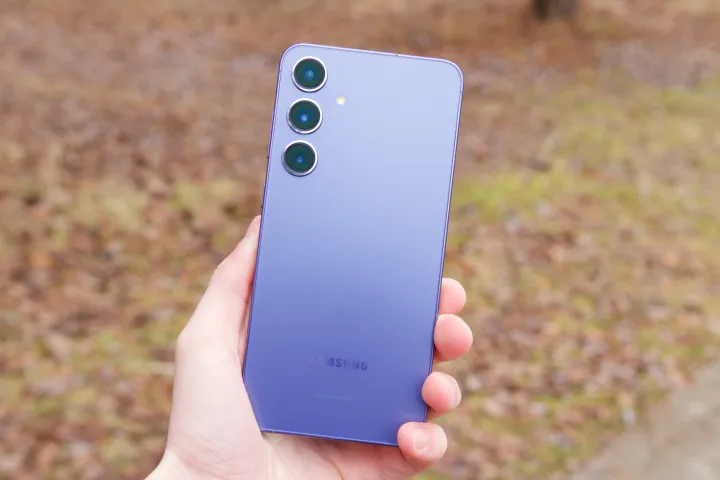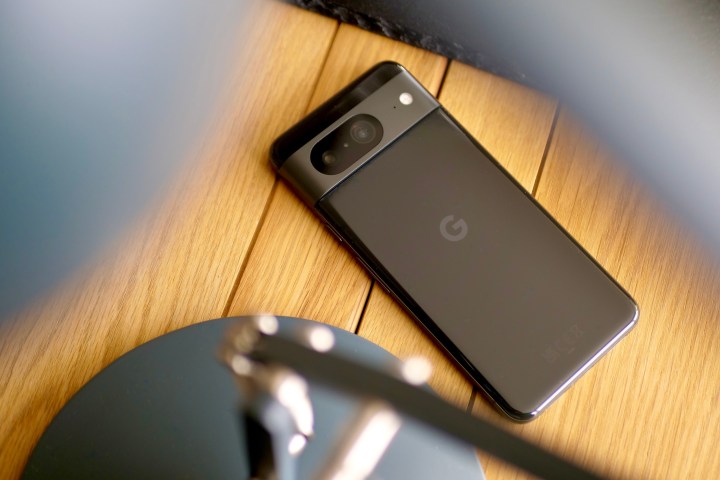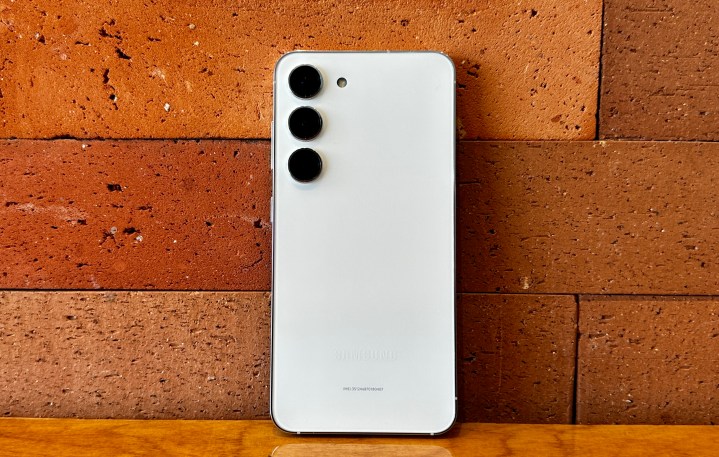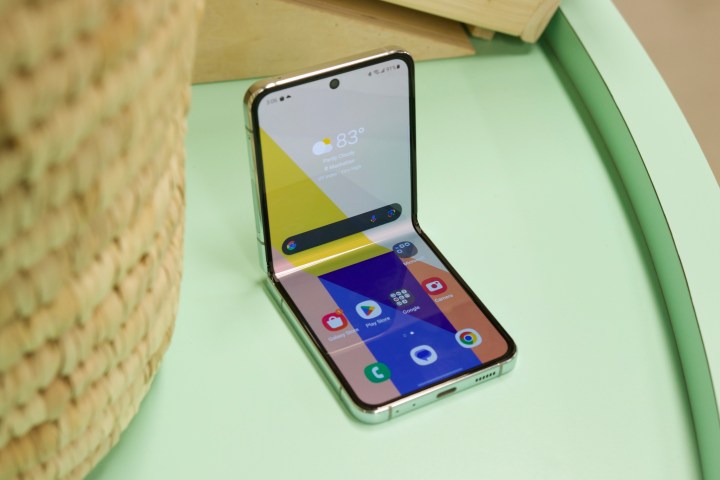In the market for a new phone? You might be considering the latest offering from Samsung, which includes the Galaxy S24. It’s the entry level model for the S24 lineup, but still packs great performance and power with Snapdragon 8 Gen 3 chip and 8GB RAM, a beautiful LTPO AMOLED display with up to 120Hz refresh rate and 2,600 nits peak brightness. And even though it’s a base model, you get a triple lens camera system.
But the Galaxy S24 isn’t the only option you have out there. Here are five great alternatives to consider if you’re thinking about the S24.
Samsung Galaxy S24 Plus

If you’re already considering the base model Galaxy S24, you may want to think about going with the Galaxy S24 Plus instead. There are a few reasons behind this if you don’t mind the bigger size.
First, you get a lot more screen space. The regular S24 only has a 6.1-inch display, which is great if you prefer compact phones. But the S24 Plus has a 6.7-inch display, which will show off a lot more on the screen at once, and it’s also easier to see things if you have aging eyes. A bigger screen is also better for viewing full-screen videos!
Not only does the larger size of the Galaxy S24 Plus mean more screen space, but you also get a larger battery inside. Based on our testing, the S24 Plus can easily last two days with moderate usage, thanks to the 4,900mAh battery and power efficiency of the Snapdragon 8 Gen 3 chip. You also get 12GB RAM, which means it has slightly better performance over the regular S24, too.
Lastly, the icing on the cake is the faster wired charging for the Galaxy S24 Plus. With the Galaxy S24, you only get a maximum of 25W charging speeds when plugged in, but the S24 Plus (and S24 Ultra) support up to 45W charging speeds. So even if you don’t quite get up to two days of use from the S24 Plus, it takes less time to charge up than the S24.
All of these are pretty good reasons to justify spending a little extra. The base Galaxy S24 starts at $800, but the Galaxy S24 Plus starts at $1,000 and you get more bang for your buck, unless you just hate the idea of big phones.
Google Pixel 8

Still prefer a smaller phone? I don’t blame you — they’re easier to use with one hand, which is always a plus. If that’s the case, then the Google Pixel 8 is worth a look as well.
Not only does the Google Pixel 8 have a similar size to the Galaxy S24 at 6.2 inches, but it also reaches 2,000 nits of peak brightness and has a refresh rate between 60Hz and 120Hz. The Pixel 8 also has 8GB RAM like the S24, but it uses Google’s in-house Tensor G3 chip for optimized performance.
A big advantage that Google Pixel devices have over Samsung’s is the pure Android interface. If you’re not a fan of the extra stuff that Samsung adds and just want a clean, stock Android experience, then the Pixel 8 is the best way to go about it.
Plus, the Google Pixel 8 camera takes fantastic photos. Despite not having a triple-lens camera system like the S24, the Pixel 8’s strengths are in the resulting images. Samsung tends to have very vibrant and saturated photos, but not everyone prefers them that way. For a more natural and realistic look, the Google Pixel is better.
The Pixel 8 is a fantastic phone, and it’s actually cheaper than the S24 at just $700.
OnePlus 12

Anyone who’s looking for a great value definitely needs to consider the OnePlus 12. Not only does it cost the same as the Samsung Galaxy S24, but it packs in a ton more features, so you definitely get a lot more bang for your buck.
First off, it has a gorgeous 6.8-inch LTPO AMOLED display that has insanely high pixel resolution at 1440 x 3168 and 510 pixels per inch density. But it also has a dynamic refresh rate of 120Hz, and the peak brightness reaches a retina-burning 4,500 nits! If you need one of the absolute brightest displays on a smartphone, then the OnePlus 12 is it. And the curved display means a more immersive experience, though it can also lead to some unwanted touches if you’re not used to such a screen.
The OnePlus 12 is also an absolute beast in performance with Snapdragon 8 Gen 3, up to 16GB of RAM, and up to 512GB of storage. Though most people probably don’t need that much RAM on a smartphone, it’s there if you really want it, perhaps for gaming purposes or multitasking like no tomorrow.
And the cameras! The OnePlus 12 has a super impressive triple-lens camera array with a 50MP main camera, a 64MP periscope telephoto camera for 3x optical zoom, and a 48MP ultrawide camera. In our camera comparison between the Galaxy S24 and the OnePlus 12, the OnePlus 12 was the definite winner. It even has Hasselblad’s expert color tuning for better colors and balance.
OnePlus also one-ups the Galaxy S24 in terms of battery life and charging. It has a massive 5,400mAh battery inside, easily lasting at least two days depending on usage. And when you need to recharge, it has very fast 80W charging speeds with a cable, and also supports 50W wireless charging. This easily puts the S24 in its place.
Best of all, the OnePlus 12 is absolutely beautiful in the Flowy Emerald color, which actually sparkles (even the camera module) in light. It’s a truly unique design, so if you’re bored of the same boring look of the Galaxy S24, then the OnePlus 12 is the phone for you.
Samsung Galaxy S23

Still set on getting a Galaxy S24? If so, you could actually save a lot of money if you go for last year’s Galaxy S23 instead. Aside from the new Galaxy AI features, which are actually now available for the S23, there’s not much difference between the two.
The S24 and S23 are similar in size, as they’re the most compact of their lineup. Samsung changed the frame for the S24 this year by giving it flat edges, but the S23 still has rounded and curved edges. Aside from that, there is not really a difference in overall appearance.
The Galaxy S23 uses the older Snapdragon 8 Gen 2, which was the previous iteration of the chip found in the Galaxy S24. It’s still a great piece of silicon, though, offering fast performance paired with 8GB RAM.
Samsung didn’t upgrade the cameras on the S24, so they’re the same as the ones on the S23. That means you still have a 50MP main shooter, a 10MP telephoto camera with 3x optical zoom, and a 12MP ultrawide camera. The selfie camera is still 12MP as well. Samsung did make some improvements on the Galaxy S24 as far as color processing, so you may notice that the Galaxy S23’s images are slightly more vibrant and punchy.
Again, the biggest selling point of the Galaxy S24 series is Galaxy AI — otherwise, it’s mostly the same as the previous generation. But since Galaxy AI is now available for the S23 (and other phones), you can definitely save a lot of money by getting an S23 instead, especially since it’s easy to find a good deal these days.
Samsung Galaxy Z Flip 5

If one of the reasons you were thinking about the Galaxy S24 is due to the compact size, then perhaps you should also consider the Galaxy Z Flip 5.
The Galaxy Z Flip 5 is one of the best flip phones you can buy. The 3.4-inch cover display is a big improvement over the 1.9-inch panel from its predecessor. And with a bit of initial setup, you can run any app you’d like on the cover display, which is pretty darn convenient.
Once you open up the Z Flip 5, you get a beautiful and large 6.7-inch display with a 120Hz refresh rate and peak brightness of 1,750 nits. On the inside, you have the Snapdragon 8 Gen 2 and 8GB RAM, so the performance is pretty solid for what it’s worth. However, considering the size, the battery life from the 3,700mAh cell isn’t too great, and it only has 25W wired and 15W wireless charging speeds like the S24.
As far as the cameras go, most flip phones don’t have the best camera hardware, and that is true with the Galaxy Z Flip 5. But it’s still decent; you get a 12MP main camera and a 12MP ultrawide camera, with a 10MP selfie camera. Plus, the flip form factor gives you additional ways to take photos, which you can’t get with the S24.
You’ll pay a bit more for the Galaxy Z Flip 5 than the Galaxy S24, but this is the way to go if you want a compact flagship phone that’ll stand out from the crowd.
Editors’ Recommendations
Leave A Comment
You must be logged in to post a comment.